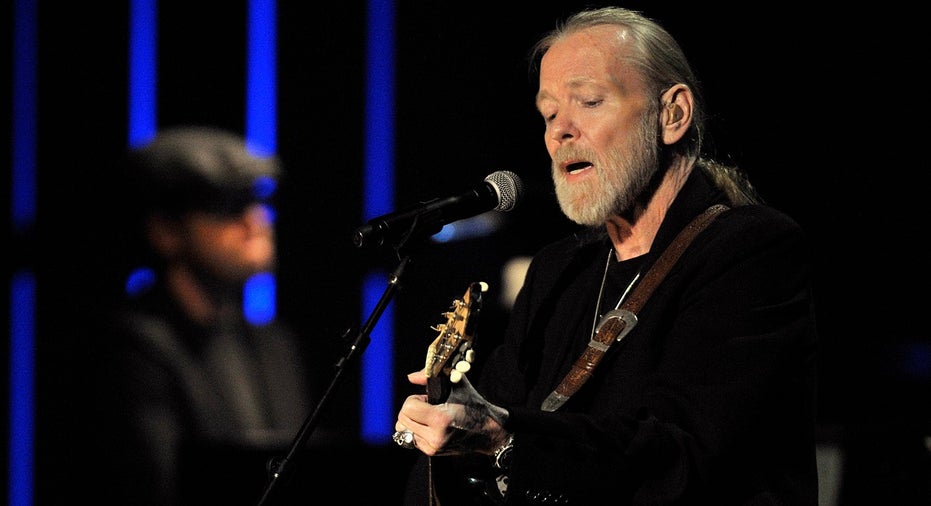Southern rock music pioneer Gregg Allman dead at 69

Gregg Allman, whose soulful vocals made the Allman Brothers Band one of rock's top acts in the 1970s with songs such as "Whipping Post," in a career also marred by tragedy and drug abuse, died on Saturday at the age of 69, his official website said.
"It is with deep sadness that we announce that Gregg Allman, a founding member of The Allman Brothers Band, passed away peacefully at his home in Savannah, Georgia," it said.
Drummer Butch Trucks, another founding member of the band, died aged 60 on Jan. 24.
The Allman Brothers Band was started in Macon, Georgia, in the late 1960s by Gregg and older brother Duane, who became the band's guiding force and one of rock's most revered guitarists before he was killed in a motorcycle accident at age 24. In its heyday, the band was a staple on radio stations and released albums ranked among the best in rock history.
Gregg was the band's lead singer, keyboardist and a key songwriter as it put out a string of hits. He wrote several of them - "It's Not My Cross to Bear," "Midnight Rider," "Ain't Wastin' Time No More" and "Melissa" - while others were renditions of old blues songs, including "One Way Out" and "Statesboro Blues."
The band was an early progenitor of what became known as Southern rock. In addition to blues, the band also was known for its crystal guitar harmonies between Duane and Dickey Betts, jazz influences and a free-wheeling approach that sometimes led to 20-minute songs. Rising above it all was Gregg's voice.
"My southern-rock heart is breaking," music star Melissa Etheridge said on her Twitter feed.
Country music great Charlie Daniels said on Twitter: "Gregg Allman had a feeling for the blues very few ever have, hard to believe that magnificent voice is stilled forever."
$20 GUITAR
Gregg and Duane spent their early childhood in their birthplace, Nashville, Tennessee, listening to a blues radio station. After their father was killed by a hitchhiker, their mother moved them to Daytona Beach, Florida.
The brothers showed little interest in school but were passionate about music and often fought over the $20 guitar that Gregg had bought at Sears.
"Duane and I caught it like an illness," Gregg told Southern Living magazine. "We didn't eat, we didn't sleep, we didn't think about anything except music."
As teenagers, they began playing a series of bands, including racially integrated ones, a rarity at the time in the South. When they first went on the road in 1965 with a band named the Allman Joys, the name was borrowed from a popular candy bar called Almond Joy.
After unfulfilling experiences with the music industry in Los Angeles, Gregg and Duane ended up in Macon, Georgia - hometown of Little Richard and Otis Redding - in 1969 and brought together the Allman Brothers Band.
They were a scruffy-looking, denim-clad assemblage and Gregg stood out with his long golden-blond hair. The band members developed a family-style relationship, bonding while hanging out at Macon's Rose Hill cemetery, with Duane in what Gregg said was the father role.
The band's first three albums - including "At Fillmore East," considered a ground-breaking live recording at the time - made them stars, but shortly after that, Duane had his fatal motorcycle crash in Macon in 1971.
The rest of the band was stricken but carried on and put out another well-regarded album, "Eat a Peach." Then 13 months after Duane's death, bassist Berry Oakley was killed in a similar motorcycle accident only a few blocks from where Duane had been killed. They were buried next to each other in Rose Hill.
COCAINE ON A BAR
The band carried on but fell into the trap of rock star excess. Drugs became so prevalent that the first time they entered their new private plane, they were greeted by the words "Welcome Allman Brothers" spelled out in cocaine on the bar, Gregg wrote in his memoir, "My Cross to Bear."
By the mid-'70s the cloud over the band grew darker as Gregg became a heroin addict and Betts assumed leadership. When Allman's valet, Scooter Herring, was arrested for drug dealing in 1976, Allman, then married to singer-actress Cher, accepted immunity and testified to a grand jury against the man who acquired drugs for him.
What had once been a familial group split up over what was seen as Allman's betrayal. He would go on to a solo career, as well as taking part in reformations of the Allman Brothers before bringing down the curtain on the group in 2014 with a four-hour show in New York that included original members Butch Trucks and Jai Johanny Johanson.
The band was inducted into the Rock and Roll Hall of Fame in 1995 but Allman said in his book that he was too drunk to enjoy it.
(Reporting by Bill Trott; Additional reporting by Jon Herskovitz; Editing by James Dalgleish)



















